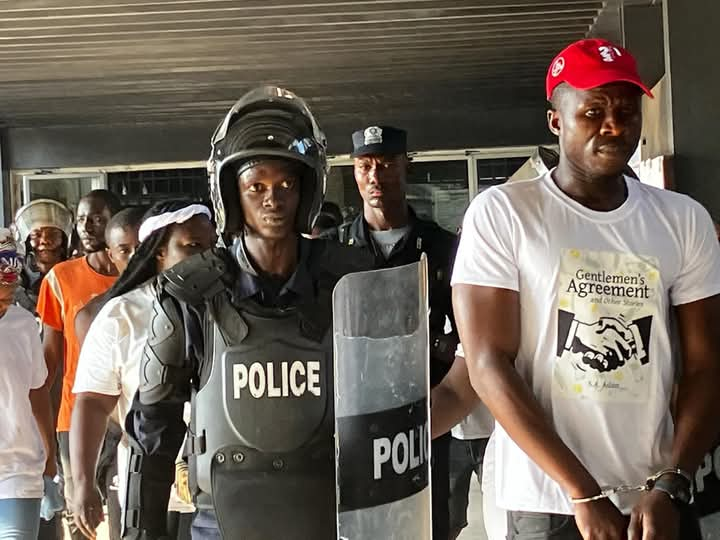The political landscape of Liberia is experiencing renewed tension following the arrest and detention of Sekou Kalasco Damaro, a former presidential aide during the administration of ex-President George Weah. Lenn Eugene Nagbe, who served as Weah’s campaign manager and former Maritime Commissioner, has publicly denounced the arrest, characterizing it as a politically motivated act devoid of substantial evidence. Nagbe has strongly hinted at pursuing legal action against the Liberian National Police (LNP), accusing them of orchestrating a “targeted arrest” aimed at suppressing dissent and manipulating the justice system for political gain. This incident stems from a recent protest on Capitol Hill in Monrovia, during which clashes erupted between demonstrators and law enforcement officials.
Nagbe’s primary contention revolves around the perceived lack of evidence justifying Damaro’s arrest. He argues that the LNP acted without a warrant and based their actions solely on Damaro’s affiliation with the former ruling party, the Congress for Democratic Change (CDC), and his previous position as a presidential aide. Nagbe emphasizes the importance of due process and the necessity of concrete evidence before detaining an individual. He frames the arrest as an abuse of power, a symptom of what he describes as the government’s “tyrannical” tendencies. The threat of legal action underscores the seriousness of the allegations and the determination of the CDC to challenge what they perceive as an unjust persecution of their members.
Damaro, speaking after his release from detention, echoes Nagbe’s sentiments, proclaiming his innocence and attributing his arrest to his political connections. He maintains that the authorities targeted him specifically due to his prominence within the CDC and his close association with former President Weah. He sees the arrest as a calculated attempt to create a spectacle and portray the LNP as actively addressing dissent, even if it means compromising individual rights. Damaro’s assertion of innocence and his belief that he was singled out due to his political affiliations further fuels the narrative of politically motivated persecution.
This incident highlights the ongoing political tensions in Liberia and the deep divisions that persist following the change in administration. The CDC’s accusations against the LNP suggest a perception of continued targeting and harassment of opposition figures. Damaro’s arrest has become a rallying point for the CDC, solidifying their narrative of an oppressive government seeking to silence dissent. The potential legal battle looms as a significant development, poised to test the strength of Liberia’s judicial system and its ability to uphold the rule of law in a politically charged environment.
The clash between protesters and police on Capitol Hill, which served as the backdrop for Damaro’s arrest, underscores the fragility of political stability in Liberia. The protest itself, described as “White Tuesday,” suggests a deliberate attempt to draw attention to grievances against the current government. The ensuing confrontation with police and the subsequent arrest of Damaro have escalated the situation, transforming a demonstration into a focal point of political contention. This incident raises concerns about the government’s response to public dissent and the potential for further clashes between protesters and law enforcement.
The threat of legal action against the LNP represents a critical juncture in this unfolding political drama. If the CDC proceeds with their lawsuit, it will not only challenge the legality of Damaro’s arrest but also put the LNP’s practices under intense scrutiny. The outcome of such a legal battle could have significant implications for the political landscape of Liberia, influencing the relationship between the government and the opposition, and potentially setting a precedent for future protests and arrests. The international community will likely be watching closely, as the case has the potential to shed light on the state of human rights and the rule of law in Liberia.


